Guest post by Liz Bell
Bristol is a great place to be if you want a career in television production. It’s renowned for the wildlife and factual programmes made by the BBC and the many independent companies based here, and with its close-knit professional community it’s an excellent alternative to the sometimes cut-throat London scene.
But if you’ve done your research, you’ll know that it’s not easy to get your foot in the door. Competition is fierce, jobs are rarely advertised and everybody wants someone with tons of experience (which you haven’t got because no one will give you a chance).
As a former TV producer, I get a lot of questions from people wanting to break into the TV industry. So here are my top tips to answer that perennial question: as a recent or soon-to-be Bristol graduate, how can you make yourself stand out from the crowd and get a job?
- Ask for work experience
It’s extremely unusual to get a job in a TV company without having done some work experience first. This usually takes the form of a week or so of unpaid work with an independent production company (a company that gets commissioned by broadcasters to make programmes).
Do your research online to find what companies are out there, and send them a CV and cover letter explaining that you want to do work experience with them.
- Show, don’t tell
It’s an old TV cliché – don’t tell your audience something if you can show it instead. TV companies get countless letters and emails from graduates who are “truly passionate about wildlife” and who have “loved wildlife documentaries from a young age.”
If you are as passionate as you say you are, get out there and volunteer with a wildlife trust, create a wildlife blog, make your own short films with your phone. The important thing is to show initiative, and a willingness to put some effort in.
- Edit your CV
If you’ve had the same CV since secondary school, it’s time to change it. No one is going to care what GCSEs you got, or whether you worked part-time in a shoe shop during school.
Give your CV a title – your name, and ‘Entry-level Runner/Researcher’ will do. Then start with a short, factual paragraph summarising who you are, including anything that makes you unique, eg: “Recent Zoology graduate with [strong writing skills / an interest in marine life / a keen interest in British wildlife] looking for work experience to start a career in wildlife TV production.”
Next put any relevant skills and experience – like making your own films, ability to take photographs well, being able to use Photoshop or any editing software, any PADI (diving) qualifications, driving licence, etc.
If you have any relevant work experience already, put that next, and only then put your academic qualifications. You don’t need anything before A Levels, and you don’t need much detail about your degree unless your honours project involved a specialist area you might want to expand on.
Finally, include two references – if you haven’t got a TV-related one, a university tutor/lecturer who knows you well, or someone you have volunteered for, are both fine.
- Make the most of opportunities
Jobs in TV, and opportunities for work experience, rarely fall into your lap. You have to go out there and look for them, which involves networking with people and keeping yourself in the front of their minds for the next time an opportunity arises.
Go to relevant events, meet people, email producers of TV programmes you’ve enjoyed. If someone offers you advice, always follow up and keep in touch, as it will make them more likely to think of you when they need a runner.
Once you get offered some work experience, or even land your first job, don’t sit back and think you’ve made it! TV work is almost all contract-based, and jobs are given largely based on recommendations. So make yourself useful, be polite and remember that even if you’re doing a week of work experience for free, you need the company far more than they need you.
- Be prepared for a career in TV
TV production is hard to get into mainly because so many people want to do it – and with good reason – it can be exciting, rewarding and very interesting. But as anyone who has worked in the industry for any length of time will tell you, it can also be stressful, frustrating and often mundane.
Short contracts mean no long-term job security, it’s hard to keep a work-life balance, and the majority of the time it takes to make a programme is spent in the office rather than filming animals in exotic locations.
In other words, keep your expectations realistic, and don’t expect it to be a dream job all of the time. If you know what you’re letting yourself in for and you follow some of these tips, you stand a great chance of getting started in a successful and fulfilling TV career.
Liz Bell is a Bristol graduate (Biology BSc) and former TV Development producer (working on and pitching ideas for new programmes). She worked in Bristol at the BBC Natural History Unit and at various independent production companies, as well as in Melbourne, Australia. She now lives in Birmingham and works as a communications consultant and writer for the charity sector.
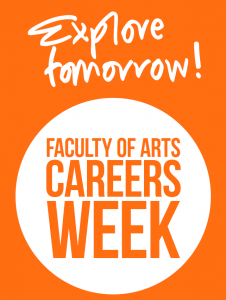

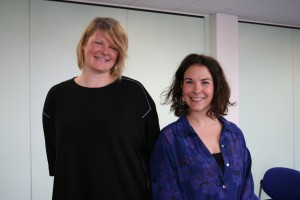
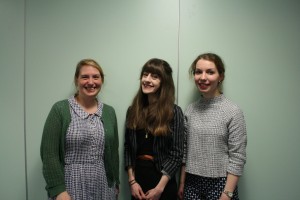

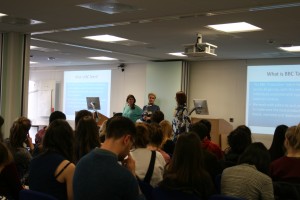
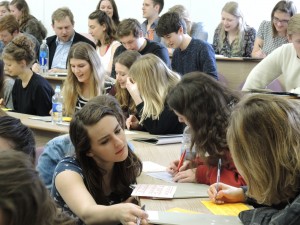
 Publishing Advertising, marketing and PR Creative industries Broadcast (TV and radio) Film and production The speakers at the conference ranged from recent alumni now working in film production through to the former Director of BBC World Service and Global News. The conference gave students the opportunity to talk with employers and alumni and find out more about different areas of the media industry. Last year speakers included representatives from
Publishing Advertising, marketing and PR Creative industries Broadcast (TV and radio) Film and production The speakers at the conference ranged from recent alumni now working in film production through to the former Director of BBC World Service and Global News. The conference gave students the opportunity to talk with employers and alumni and find out more about different areas of the media industry. Last year speakers included representatives from